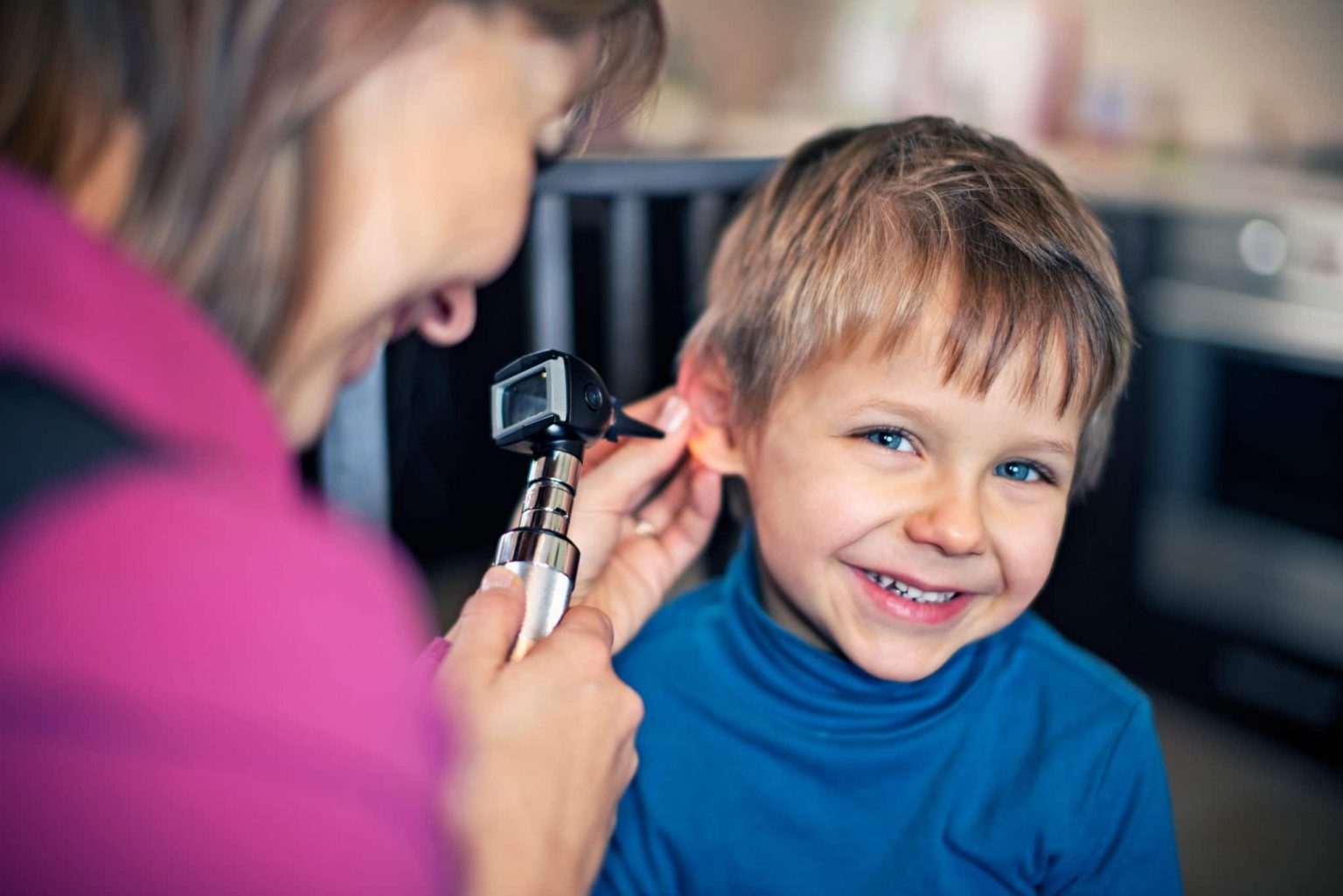Earaches are a common childhood ailment. Though they’re uncomfortable, they usually clear up on their own or with the help of antibiotics. If your child experiences frequent ear infections, our team will be here to provide treatment and support. Your family doesn’t have to navigate this alone.
Ear Tubes Are One Solution for Chronic Infections
Ear tubes are inserted into the child’s eardrum to equalize pressure and reduce the risk of infection. In the middle ear, the eustachian tubes connect to the back of the throat. Because the Eustachian tube is smaller in children, it is more prone to swelling. When this occurs, fluid is trapped in the middle ear, leading to a blockage.
When fluid pushes on the eardrum during a blockage, it can be painful and may lead to difficulties hearing. Our provider might suggest your child receive surgery for ear tubes if they experience frequent ear infections or the infections result in speech delay or hearing loss.

Is My Child Too Young for Ear Tubes?
Children as young as infants can receive ear tubes.
How Does the Surgery Work?
The surgery, known as a myringotomy, will be performed by our otolaryngologist. It usually takes between 10 and 15 minutes. While your child is under general anesthesia, our provider will create a small hole in each eardrum. Then, they will use suction to remove any fluid from the middle ear. The final step is inserting the tubes into the hole.
Throughout the procedure, our provider will make sure your child stays safe and comfortable. Before the procedure, they’ll answer any questions you or your child have and ensure everyone understands the process.
How Long Do the Tubes Remain In the Ears?
Ear tubes typically fall out on their own within four to 18 months. The holes usually heal on their own. In some cases, the tubes will need to be removed by an ENT and the holes may need to be surgically closed.
How Can I Help My Child After Surgery?
Once you’ve returned home, give your child pain medication or ear drops as prescribed.
Your child might have a minor earache or fluid draining from the ears for several days after the surgery. Additionally, their ears might pop when they chew or burp. These symptoms will ease as the eardrum heals.
If your child experiences ear infections often, there are treatment options available. Our team can partner with your family to find the best solution. Whether it’s ear tubes or a different path, we’re here to support you along the journey.
Call Alpine Ear, Nose & Throat at for more information or to schedule an appointment.